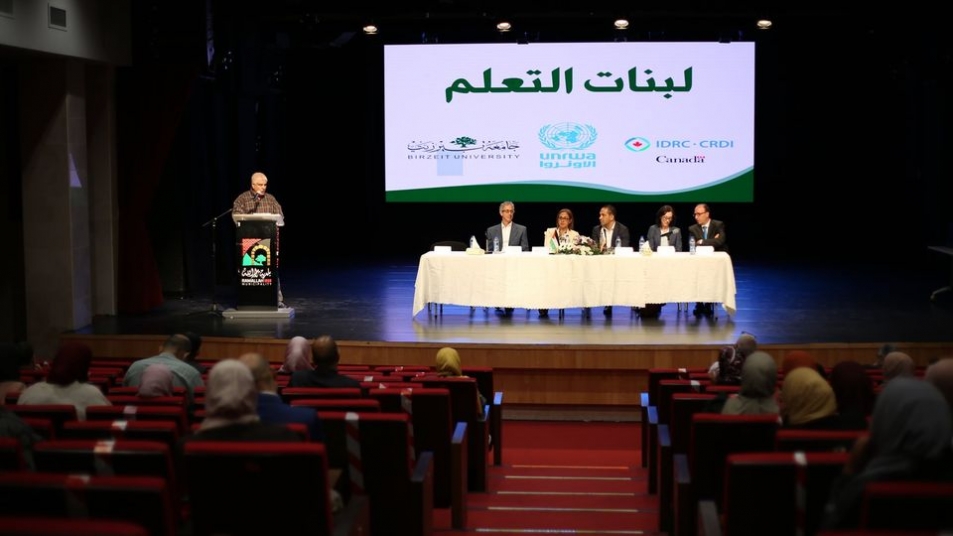Experiential Learning Objects Project to be applied at UNRWA Schools
Birzeit University’s Center for Continuing Education, in cooperation with the United Nations Relief and Works Agency for Refugees (UNRWA) launched a new project titled “The Implementation of Experiential Learning Objects (xLOBs),” marking 14 years of planning, research, and development interactive learning models integrating into primary and secondary schools in Palestine and the region.
Ninety-six UNRWA schools operating in the West Bank will integrate the new project into their science, math, Arabic language, and social learning curricula. The project will be available for grades one to nine beginning in the 2022 school year, and will continue for three years in a row.
The expansion of xLOBs comes after the project has proved to significantly improve learning outcomes in the school system, and students demonstrate more ability to connect classroom with their daily lives.
To implement the project, more than 1,400 schoolteachers, advisors, and principals will participate in capacity-building training and workshops on ways to incorporate the learning objects and interactive lessons in their classrooms.
Commenting on the launching of the project, Mohammad Salameh, deputy chief of the education programme at UNRWA, said that xLOBs is the first step toward institutionalizing a new phase in Palestinian schools, especially those affiliated with the UNRWA. Salameh explained that the experiential learning objects project seeks to provide quality, student-centric education to Palestinian refugees.
Osama Mimi, director of the Center for Continuing Education, pointed out that Birzeit University, while working toward building a long-standing partnership with UNRWA, seeks to implement creative tools to create real change in the Palestinian educational system. The learning objects, Mimi added, integrate life skills and social education into basic educational systems, in which students are the center of the educational experience.
The project is implemented in partnership with the International Development Research Centre (IDRC), Canada.







